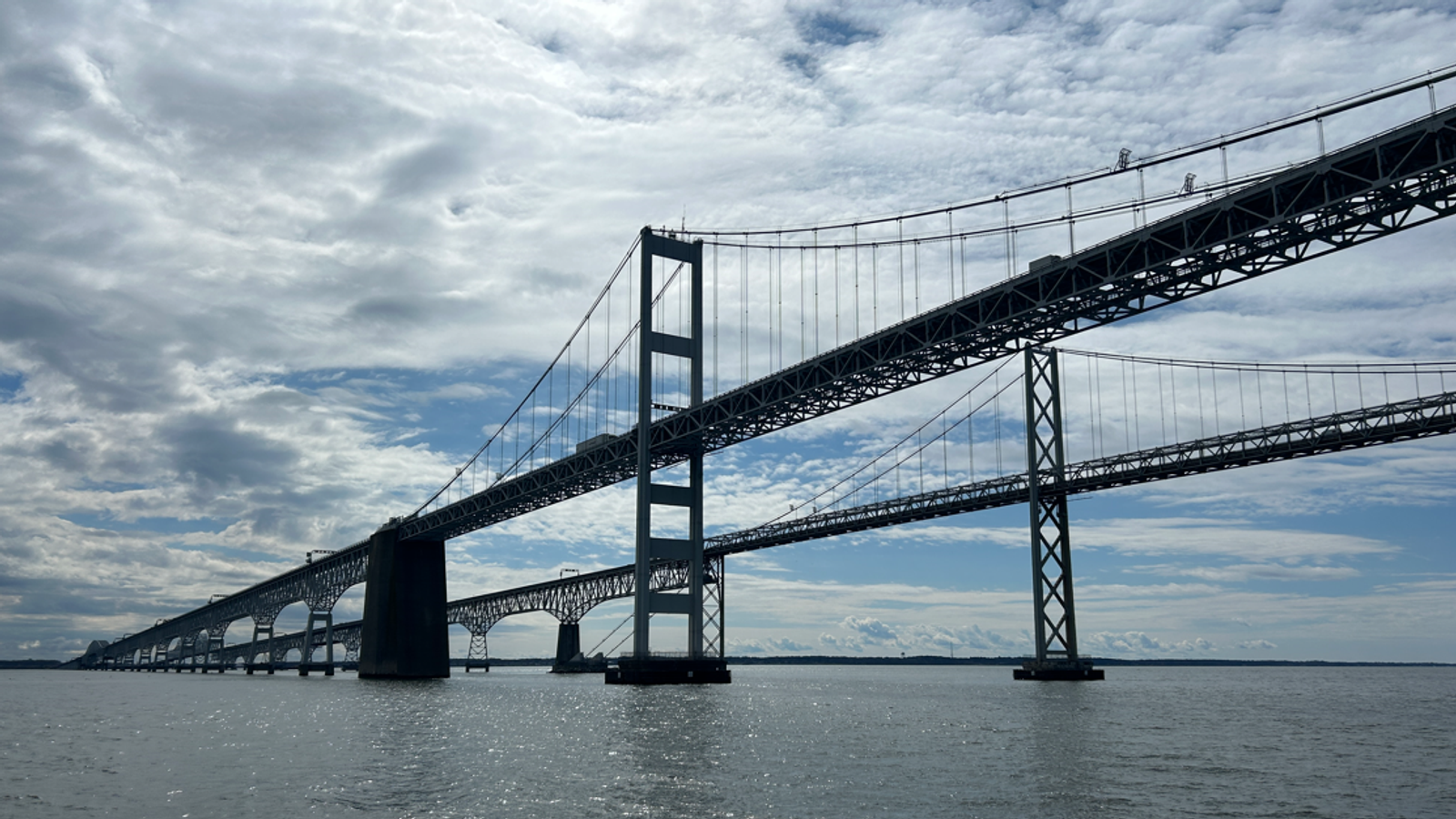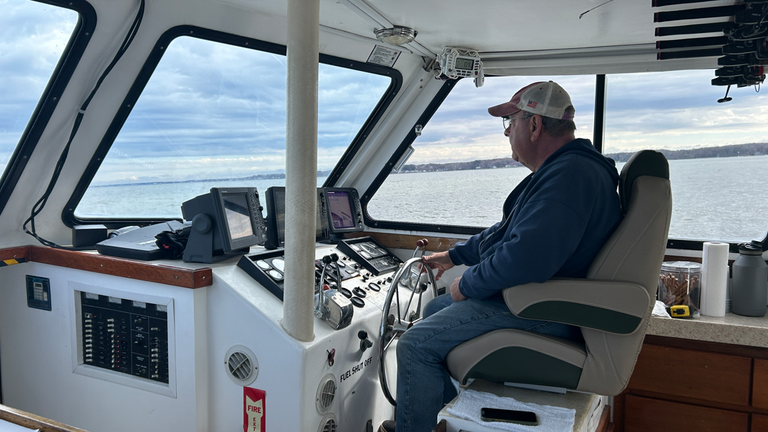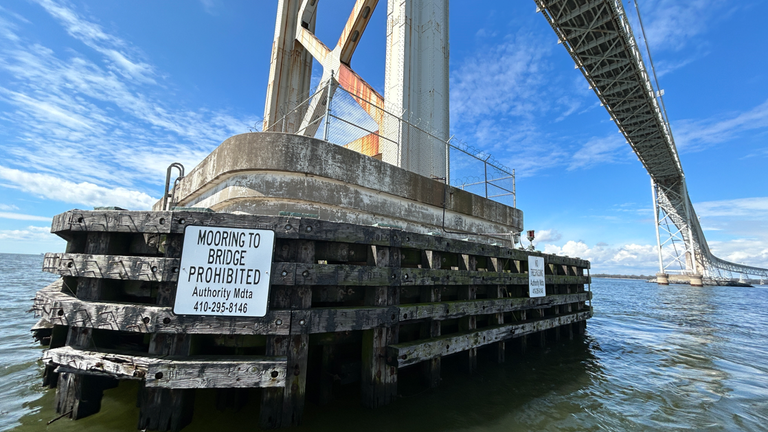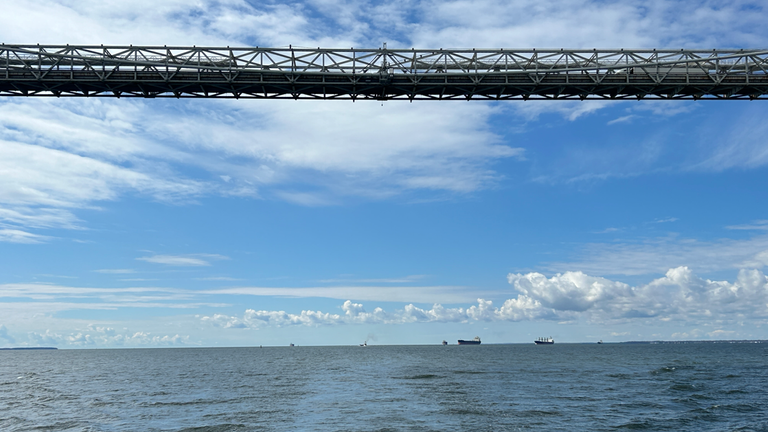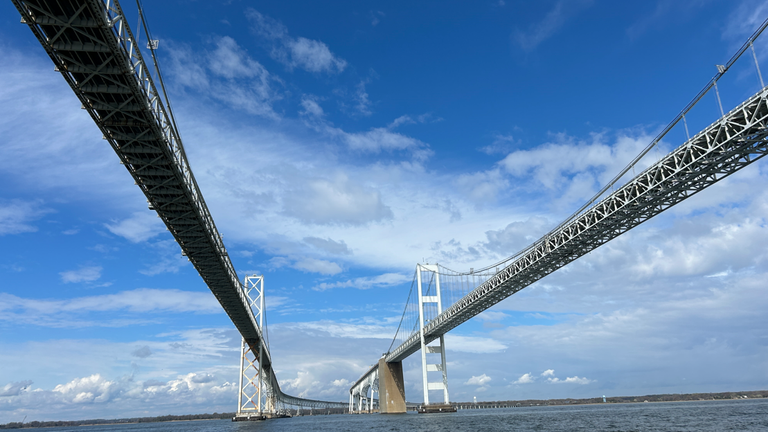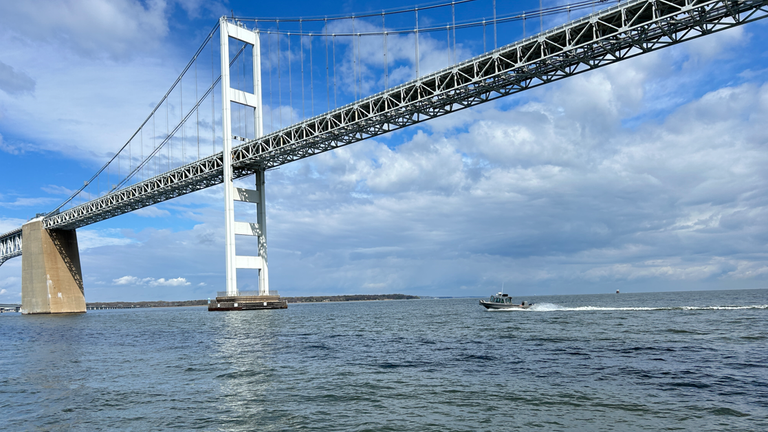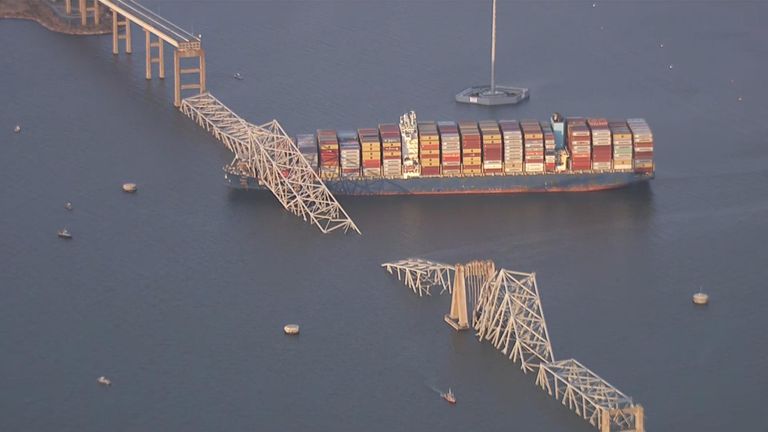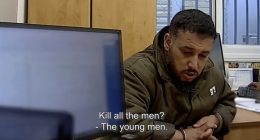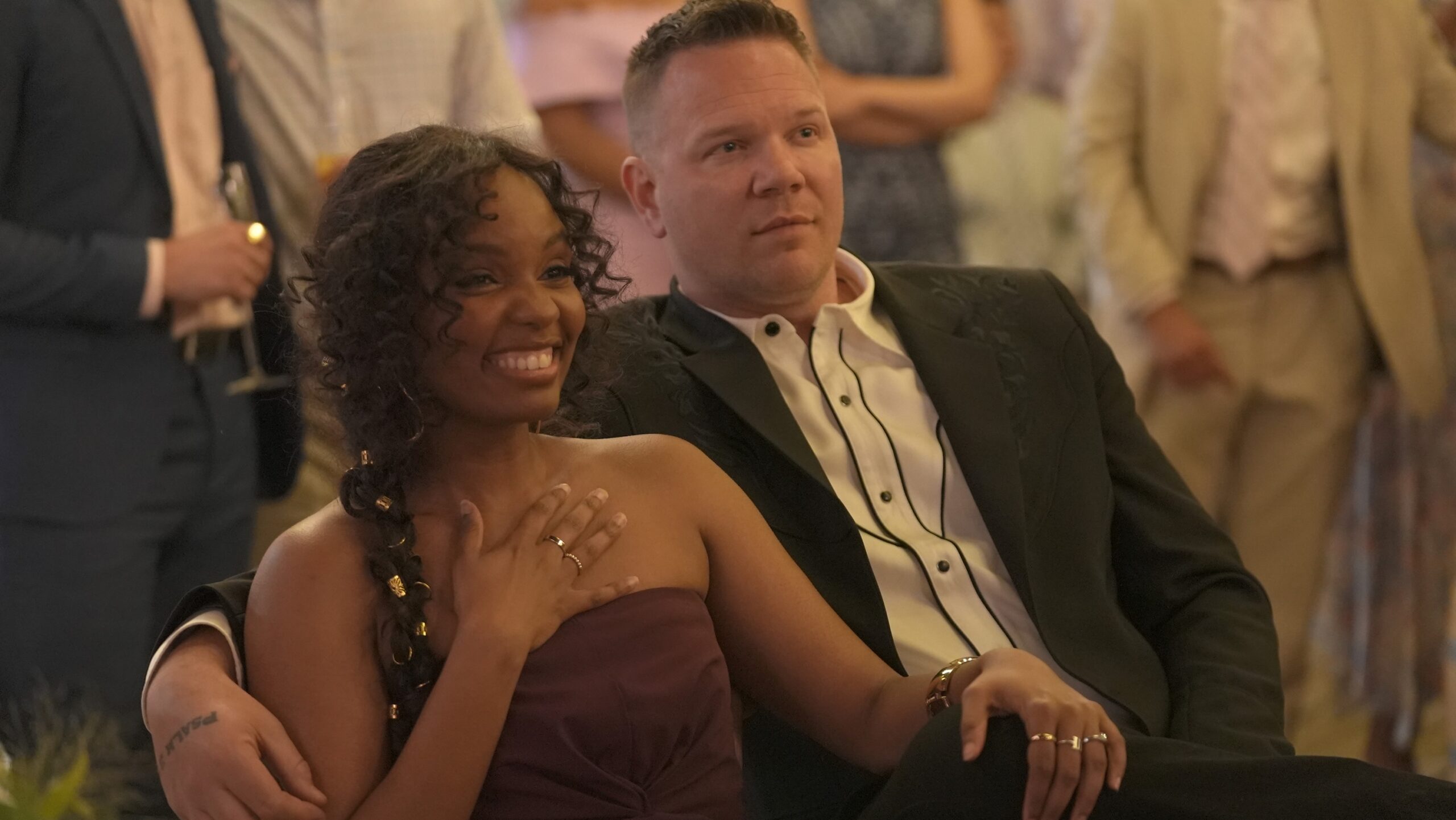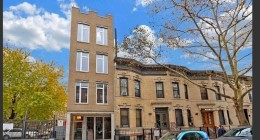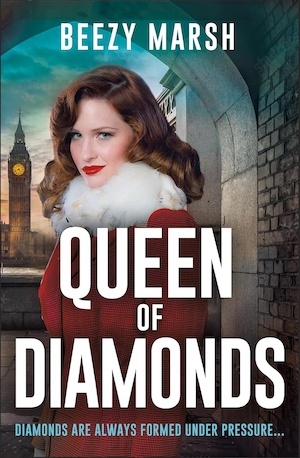The images of the Francis Scott Key Bridge collapsing were extraordinary and chilling.
A tragedy has now become an economic and logistical nightmare for the region.
But was it a freak one-off? Well, worryingly, maybe not.
Just 20 miles downstream from the Key Bridge, and on the same shipping lane, is another that’s bigger, longer, older and busier. And it’s earned the tag – the scariest in America.
The Chesapeake Bay Bridge is actually two. One bridge, for two lanes of traffic, was built in 1952. A second, with three lanes, was added in 1973.
A hodge-podge of different bridges
Sky News took to Chesapeake Bay with local fisherman Brian Hardman.
We passed the backed up cargo ships, blocked from entering Baltimore Port because of the downed Key Bridge up stream.
We paused way below the vast Chesapeake Bay Bridge complex for a closer look at this ageing feat of engineering.
Up close to the one of the four pylons which supports the suspended part of the four mile-long bridges, you do not need to be an expert to see the lack of protection.
A sitting duck
A tiny wooden buffer, broken in places, clads ageing concrete from which corroding metal work supports the road high above.
If a ship was to hit one of these pylons, the impact point would be high up, given the height of modern cargo vessels.
The dual bridges are used by 27 million vehicles a year. Eleven million tonnes of cargo pass under them. And yet it is classed by federal authorities as fracture critical.
“The bridge, when I look at it, it’s like a sitting duck just at the mercy of the ships.” structural engineer Professor Abe Aghayere told me.
His view is shared by peers and he outlines what “fracture critical” means.
“If one piece goes, a whole section of the bridge, or the whole bridge entirely, could go just like the Key Bridge did,” the professor said.
“The piers or the pylons of that of the Bay Bridge are unprotected just like the Key Bridge was. So that worries me. For a bridge that long with that much traffic, it needs to be protected.”
It’s everybody’s concern
At his office nearby, we meet commissioner Jim Moran. He is a local politician who campaigns for funding to fix the bridge and build a third one to ease congestion. He is always wondering “what if?”.
“The Bay Bridge, as some people know – it’s been ranked as one of the scariest bridges.”
I suggest to him that it doesn’t look to be in great shape.
“Right,” he says.
“And the state is spending a great deal of money to stay ahead of it. I mean, that ship that hit the Key Bridge was probably 100,000 tons. And I don’t know anything that could withstand being hit. So that force, that energy, you know, it’s something everybody’s looking into. It’s everybody’s concern.”
As President Biden surveyed the damage at the Key Bridge, his words were a reminder that it’s an election year.
“Your nation has your back,” the president said.
“The federal government will pay for the entire cost of reconstructing that bridge, and I expect the Congress to support my effort.”
The disaster in Baltimore is a huge setback for the city and the region but could it represent an opportunity for President Biden and the Democratic Party?
Commissioner Moran is a Republican. I asked if he thought whether the president had handled the crisis well.
“Yes, I do. He came out right out of the gate saying ‘the federal government is going to be here and we’re going to stay here’. And they’re helping mostly with money. We appreciate him coming out and stepping up to the plate and helping us with this.”
👉 Tap here to follow the Sky News Daily wherever you get your podcasts 👈
Sky News has asked the Maryland Transportation Authority to comment on the state of the structure. We are awaiting their response.
The disaster just up stream from here last month puts a critical frightening focus on infrastructure across this country.

